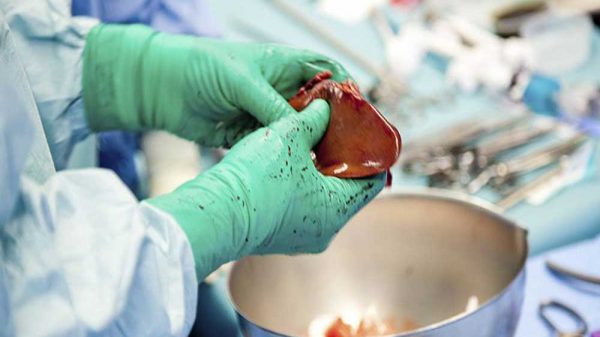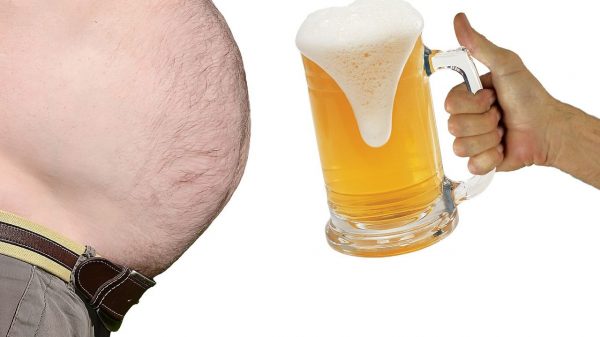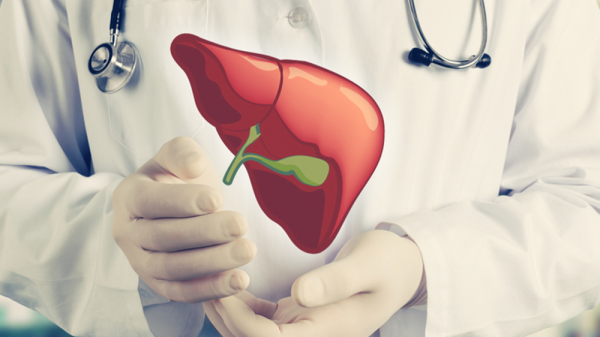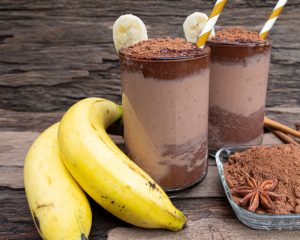Did you know that following a plant-based diet is the healthiest diet for fatty liver disease? When done right, the vegan diet is packed with health-promoting ingredients that support healthy liver function and metabolic function. Are you wondering how to follow a vegan diet for fatty liver disease? You’ve come to the right place. Read on to find out about vegan recipes, vegan meal prep ideas, and other tips for fighting fatty liver disease.
Why Is the Vegan Diet Good for Fatty Liver Disease?
Before we get into easy vegan meal prep ideas for fatty liver disease, let’s go through a quick overview of why the vegan diet is good for fatty liver disease.
Fatty liver disease – also known as hepatic steatosis – is a condition that describes the accumulation of fat within liver cells. In many cases, fatty liver disease is caused by a diet high in unhealthy fat and sugar. Over time, high consumption of these ingredients affects your body’s metabolic function and increases the risk of obesity, type 2 diabetes, insulin resistance, and fatty liver disease.
A well-planned vegan diet is low in processed foods, saturated fat, and sugar and high in ingredients that support a healthy metabolism and liver. Research shows that following a plant-based diet may play a role in improving fatty liver disease. A recent study published in the Journal of Gastrointestinal and Liver Diseases assessed the impact of a vegan diet on individuals with nonalcoholic fatty liver disease over a period of 6 months. (1) Results revealed improvements in liver function tests and liver enzyme levels.
How to Follow the Vegan Diet to Improve Fatty Liver Disease
Not just any vegan diet will improve fatty liver disease. A well-planned, plant-based diet will have the greatest impact on metabolic health and liver function. Here are a few tips to ensure
1. Choose Whole Foods Over Processed Foods
When following a plant-based diet, the majority of your meals should consist of whole foods. When you’re at the grocery store, reach for foods like vegetables, fruits, beans, nuts, seeds, and whole grains. These whole foods offer the macronutrients and micronutrients that your body needs to support a healthy metabolism and liver.
Packaged foods have often undergone processing to remove nutrients like protein, fiber, and micronutrients. Lots of packaged foods at the grocery store may sport a “vegan” label, even though they are processed and packed with added sugars and refined grains. Eating large amounts of processed foods – vegan or not – can worsen metabolic syndrome and fatty liver disease.
2. Stick to Complex Carbs
In the health and fitness world, carbs are a nemesis. However, on the vegan diet, carbohydrates make up a sizable portion of your calorie intake since all meat and dairy products have been eliminated. The key is making sure that you’re choosing healthy, complex carbohydrates. Foods that contain complex carbohydrates are usually also packed with fiber and protein, slowing down digestion and slowing the release of sugar into the bloodstream.
Excellent examples of complex carbohydrates include sweet potato, whole-grain bread, whole-grain pasta, brown rice, quinoa, whole oats, millet, bulgar, buckwheat, and popcorn.
3. Balanced Ratios of Essential Amino Acids
When you’re following a vegan diet, getting enough protein is usually not a problem. In fact, when you’re eating a well-balanced and varied vegan diet, you will usually obtain plenty of grams of protein. Instead, the challenge is ensuring that you’re getting ideal ratios of essential amino acids from the protein you’re getting.
What are amino acids anyways, and why are they so important for fatty liver disease? Amino acids are building blocks of protein that the human body requires to carry out biological processes. While the body can produce nonessential amino acids, essential amino acids must be obtained from food every day. Essential amino acids are critical for the synthesis of muscle tissue, hormones, enzymes, and neurotransmitters.
Essential amino acids are also vital for supporting liver health, and research shows they may play a key role in reversing fatty liver disease. A study published in Nutrition found that, in comparison to the control trial, essential amino acid supplementation was linked to lower levels of blood triglycerides, cholesterol, and liver fat. (2)
So, how can you get the essential amino acids you need while following a vegan diet? To obtain optimal ratios of essential amino acids on a vegan diet, plant proteins must be combined throughout the day. Nuts, seeds, whole grains, and beans are high protein vegan foods. In addition, soy-based foods like tofu and tempeh are great sources of protein. Seitan is another high protein vegan food prepared with wheat gluten. Though a great source of protein, seitan should be avoided if you require gluten-free foods. Finally, supplementation is an easy and healthy way to make sure you’re getting the essential amino acids you need to support metabolic and liver health.
4. Eating a Variety of Foods
Variety is crucial when you’re following the vegan diet. Eating an array of different vegetables, fruits, grains, beans, nuts, and seeds ensures that you’re getting the nutrients you need to support your health. These foods are rich in fiber, protein, vitamins, minerals, and antioxidants, and facilitate healthy metabolic function and liver function.
5. Meal Planning and Meal Prepping
Sticking to a plant-based diet can be tough if you don’t plan ahead. Meal planning and meal prepping help set you up for success. At the beginning of each week, plan what you’d like to eat for your meals throughout the week and determine what ingredients are needed for each meal. You could even try making a few different weekly meal plans that you can easily alternate over the course of the month.
Using your weekly meal plan, you can then start meal prepping. Meal prepping entails preparing whole meals or important meal components ahead of time and storing them in the refrigerator or freezer until mealtime. Both meal planning and meal prepping alleviate the stress of figuring out what you’re going to eat throughout the week, saving you both time and energy.
6. Supplements
When following a vegan diet, it’s useful to have certain supplements on hand. Though following a well-planned vegan diet is associated with health benefits, it may increase the risk of certain nutrient deficiencies that can be easily corrected with supplementation. For example, vitamin D and vitamin B12 are difficult for the general population to obtain from food sources but even more difficult for those following a plant-based diet.
Both vitamin D and vitamin B12 can be tough to get in adequate amounts from dietary sources. Individuals following a plant-based diet may also have a more difficult time getting balanced ratios of essential amino acids since there are no vegetable proteins that offer optimal ratios of essential amino acids in a single source.
7. Buy Healthy Frozen Foods
Frozen foods often have a bad reputation, and for a good reason. Tons of the food in the frozen section at the grocery store is processed and unhealthy, like pizza, frozen meals, and ice cream. However, that doesn’t mean that no healthy, vegan options exist! The healthy options are just a bit more difficult to find. However, having healthy, vegan foods in your freezer will help you stay on track by providing easy food options when you’re in a pinch.
Packages of frozen fruits and vegetables are great staples to have in your freezer, unlike fresh fruit and veggies that tend to go back quickly. Plus, frozen fruits and veggies retain most of their nutrients, making them excellent alternatives to fresh produce. You may even find a few healthy preparations in the freezer aisle, such as frozen quinoa and veggies, that can help you make weeknight meals easier.
8. Keep a Selection of Different Containers on Hand
Containers are the key to making the meal prep process easier since they help you safely and conveniently store food. Make sure to have various container sizes and shapes on hand to match what you are preparing. For example, divided containers are helpful for meals with multiple components, small containers work well for salad dressings, and jars work well for overnight oats.
9. Get Good at Combining Miscellaneous Items and Leftovers
You may find that leftovers and random items accumulate in the fridge; for example, the stir-fry from last night’s dinner or an old jar of unopened pickles. Instead of throwing out these foods, try combining them with whole-grain pasta or a large salad. You may be surprised by how good it tastes.
10. Chop Ahead of Time
Chopping is one of the most time-consuming processes when it comes to meal prep. Try to chop as much as possible before the week starts. Keep staples like chopped carrots, onions, peppers, and garlic in separate bags in the refrigerator.
11. Prepare Food in Bulk
The good news is that vegan food doesn’t go bad as quickly as animal products, so vegan meals are easier to store in bulk. For example, bean stews and quinoa can stay good in the refrigerator for up to a week, making this combination perfect for quick and healthy dinners.
12. Buy Staples in Bulk
Are you looking for cheap vegan meal prep ideas? Buying food in bulk is key. Just as it’s helpful to prepare meals in bulk, it’s also helpful to buy ingredients in bulk. Plus, it’s cheaper. Make sure to get vegan staples that can easily be stored in sealed containers in the pantry, such as dried beans, canned beans, quinoa, whole oats, and brown rice.
13. Appliances
Having a few key kitchen appliances on hand can make it easier to accomplish healthy meal prepping. For example, Instant Pot can help you prepare whole grains in a fraction of the time. The slow cooker can be left alone to cook your food while you get some work done. Blender and food processors allow for easy combining and mixing.
Vegan Meal Prep Ideas and Meal Prep Recipes for Fatty Liver Disease
Not sure what to eat on the vegan diet for fatty liver disease? Here we give you plenty of tasty and healthy vegan meal prep recipes ideas so you can help your liver recover from fatty liver disease.
Vegan Breakfast Ideas
Breakfast meal prep is crucial for busy mornings. These easy recipe ideas for breakfast offer plenty of protein, antioxidants, and fiber to help you fight fatty liver disease.
1. Sweet Potato Overnight Oats
Overnight oats are easy to prepare in advance so you can have hearty, nutritious breakfasts every morning of the week. Sweet potatoes add even more fiber and antioxidants called carotenoids. First, roast sweet potatoes in the oven until soft. Allow the potatoes to cool, remove the skin, and mash them with a fork.
Next, add whole oats to a mason jar. Next, add a tablespoon of chia seeds and ground flaxseeds for omega-3 fatty acids, fiber, antioxidants, and minerals. Stir in mashed sweet potatoes, cinnamon, crushed pecans, and soymilk. Stir the mixture thoroughly, until combined. Secure the lid on the jar and store it in the refrigerator overnight. In the morning, you’ll have a hearty breakfast meal that’s easy to grab on the go. If desired, top your oats with a drizzle of maple syrup, for extra sweetness.
2. Chocolate Chia Seed Pudding
Chia seed pudding is another breakfast option that can be easily prepared in advance. To make chia seed pudding, add whole chia seeds, cacao powder, and light coconut milk to a mason jar. Secure the lid on the jar and gently swirl so all chia seeds are coated in coconut milk. Place the jars in the refrigerator and allow them to sit overnight. In the morning, top your chia seed pudding with sliced bananas and a few sugar-free dark chocolate chips.
3. Red Lentil Toast with Vegan Scrambled “Eggs”
Red lentils on toast? If this combination is sounding a little bit weird, just hear us out! Red lentils are versatile and can be easily used to make a spread for toast. To prepare them, add red lentils and water to a pan and bring to a boil. Then, allow them to lightly simmer until completely soft. Red lentils will completely disintegrate forming a soupy texture. Make sure the lid is removed, and allow water to evaporate on low heat. Mix in seasonings like turmeric, curry powder, red pepper flakes, salt, and pepper. Allow the mixture to cool a little bit, and spread it on whole-grain toast. Sprinkle with chopped roasted red peppers and chives. This combination offers tons of crucial nutrients like protein and fiber.
If you’re in the mood for a filling breakfast, pair your toast with scrambled “eggs.” You can prepare your vegan scramble using tofu or tempeh, which offers lots of high-quality vegetable protein. Add tofu or tempeh to a pan and drizzle with olive oil. Saute until lightly and use a wooden spoon to break up the tofu or tempeh into a scramble-like texture. Season the mixture with turmeric, curry powder, garlic powder, salt, and pepper. Turmeric is particularly rich in antioxidants and anti-inflammatory agents that support liver health. Additionally, turmeric gives your scramble a vibrant yellow color, making your scramble visually comparable to real eggs.
4. Protein Pancakes
If you’re striving for high protein vegan meal prep, protein pancakes are the way to go. Protein pancakes make quick and easy breakfasts that can be easily prepared in advance. First, prepare the batter for the pancakes by combining whole-wheat flour, almond flour, vanilla protein powder, baking powder, ground flaxseeds, and almond milk. If you are sensitive to gluten, swap out whole-wheat flour for a gluten-free alternative.
Stir the batter mixture thoroughly until well-combined. If desired, add blueberries, mashed bananas, or raspberries. Cook the pancakes on a griddle or nonstick pan.
Allow the pancakes to cool and place them in a sealable bag or container. Store them in the refrigerator or the freezer. Simply reheat a couple of pancakes in the morning, and top with fresh fruit, almond butter or peanut butter, and a drizzle of maple syrup.
5. High-Protein Vegan Yogurt Parfait
Most vegan yogurt options don’t offer as much protein as dairy-based yogurt. To prepare a healthy breakfast, add a serving of your favorite vegan yogurt to a container. Stir in essential amino acid powder or protein powder, along with fresh fruit. Store the containers in the refrigerator. In the morning, top with a sprinkle of low-sugar granola and enjoy.
Vegan Lunch Ideas
Need vegan meal prep lunch ideas that are healthy and easily prepared on the go? Let’s go through a few healthy recipes that are convenient and support liver health.
1. Kale Salad with Sun-Dried Tomatoes
Kale and sun-dried tomatoes are packed with antioxidants that help support liver health while also supporting metabolic function. Toss kale, sun-dried tomatoes, white beans, pumpkin seeds, nutritional yeast, and hemp seeds in a container. Pair with a dressing made with olive oil, lemon juice, salt, pepper, and fresh chopped herbs. When you’re ready to eat lunch, simply pour the dressing over the salad and mix well.
2. Burrito Buddha Bowl
A Buddha bowl is a popular healthy meal prep option that combines various healthy ingredients in one lunch bowl. This Buddha bowl is inspired by the flavors and ingredients in burrito bowls. These bowls are easy to meal prep and store in the fridge. First, prepare a vegetable and bean mixture by sauteing onions, bell peppers, zucchini, mushrooms, spinach, black beans, and kidney beans in a pan. Season the mixture with chipotle chili powder, cumin, garlic powder, salt, and pepper.
Next, assemble your bowls in sealable bowl containers. Add a bed of brown rice, couscous, quinoa to each bowl. Next, add your prepared veggie mixture, sliced avocado, fresh romaine lettuce, chopped tomatoes, sliced limes, and chopped cilantro.
3. Jackfruit Wraps
A wrap is an easy way to get lots of health-promoting nutrients at lunchtime. Instead of meat, try adding jackfruit to your wrap as a meat substitute. Prepare jackfruit in a slow cooker with your favorite vegan, low-sugar barbeque sauce. Meal prep these wraps by preparing the jackfruit and chopped veggies ahead of time. Assemble your wraps by using whole-grain wraps and adding jackfruit and chopped lettuce, tomatoes, sliced carrots, and sliced banana peppers. Enjoy with a side of quinoa salad.
4. Tofu Bowls
Tofu meal prep bowls are an easy way to incorporate lots of protein and health-promoting nutrients into one dish. Plus, tofu bowls are very filling, so you feel satiated until dinner time. Combine tofu with fresh veggies like lettuce, tomatoes, red cabbage, hemp seeds, chopped olive, and roasted red peppers. Serve with a small container of balsamic dressing. You can also prepare a spin on tofu bowls by adding quinoa, for tofu quinoa bowls. Simply add a bed of quinoa below the veggies and quinoa.
Vegan Dinner Ideas
These vegan dinner recipes offer tons of plant-based protein and antioxidants to encourage better metabolic function and improvements in fatty liver disease.
1. Vegetable Tacos
Mexican veggie tacos make a yummy vegetarian meal, and they are packed with health-promoting ingredients. Plus, they don’t take long to prepare and are simple to prepare in advance. Prepare your filling for the tacos by combining tofu and black beans in a pan. Lightly saute the tofu and black beans and season with chili powder, cumin, garlic powder, salt, and pepper. Next, prepare a vegetable medley by combining onions, peppers, zucchini, chopped spinach, and mushrooms in a pan. Season with the same spices used to season the tofu and black beans.
When assembling your tacos, make sure you’re using whole-grain tortillas. Next, fill them with your tofu, beans, and veggies. Top the tacos with avocado, salsa, hot sauce, sliced avocado, chopped cilantro, and a squeeze of lime.
2. Lentil Stew
Lentil stew is a perfect one-pot recipe that offers tons of fiber and nutrients to combat fatty liver disease. Prepare lentil stew by adding lentils, chopped carrots, onions, celery, fennel, chopped potatoes, vegetable broth, and canned tomatoes. Add cumin, turmeric, and ground cloves to add a Moroccan flavor. Simmer the stew until the lentils are tender. Top with a squeeze of lemon juice and enjoy!
3. Pasta and Chickpea Salad
This light plant based dish is perfect for the summer season and can be prepared with any seasonal vegetables. First, prepare a whole-grain pasta of your choice, such as penne or fusilli. Next, add a variety of vegetables, such as onions, roasted red peppers, bell peppers, wilted spinach, and sunflower seeds. Add chickpeas and fresh chopped herbs like basil and parsley. Toss the fresh pasta, veggies, and chickpeas with a dressing made with olive oil, champagne vinegar, oregano, basil, red pepper flakes, salt, and pepper.
4. Zoodles with “Meatballs”
Zucchini noodles, or “zoodles,” is a low-carb, fiber-packed alternative to pasta. You can spiralize your own zucchini, or you can purchase pre-spiralized zucchini at the grocery store. First, prepare plant-based meatballs by mashing ground tofu, walnuts, and beans in a large bowl. Add in ground flaxseeds and seasonings like basil, oregano, red chili flakes, salt, and pepper. Stir the mixture thoroughly, and then form the mixture into meatball shapes. Place the “meatballs” onto a sheet pan lightly greased with olive oil. Bake the veggie balls until lightly browned. Serve them with the zoodles and vegan pesto or marinara sauce.
5. Tofu and Vegetable Stir-Fry
This tasty, one-pan dish offers protein and antioxidants that fight against fatty liver disease. Saute sliced firm tofu with veggies like onions, broccoli, bell peppers, carrots, cauliflower, and spinach. Prepare the sauce by pouring light coconut milk in the pan with turmeric, curry powder, chopped ginger, chopped garlic, salt, and pepper. If desired, serve the stir-fry over brown rice or quinoa.
Vegan Snack Ideas
Are you wondering what vegan snacks you can enjoy on the fatty liver disease diet plan? Here are a few ideas.
1. Hummus with Crispy Veggie
Hummus and crispy veggies make a delicious combination that offers fiber, protein, and antioxidants. First, prepare homemade hummus by blending chickpeas, olive oil, garlic cloves, tahini, salt, pepper, and paprika in a blender or food processor. Enjoy the hummus with a variety of crispy veggies like carrots, bell peppers, cucumbers, cherry tomatoes, broccoli, and cauliflower. Pack your hummus and veggies in separate containers, and enjoy the hummus as a dip.
2. Rice Cakes and Peanut Butter
Rice cakes and peanut butter offer a quick burst of energy. Pack a container with a serving of peanut butter and two large rice cakes. Alternatively, apple slices and peanut butter complement one another while offering fiber, vitamins, minerals, antioxidants, and protein.
3. Popcorn
Contrary to popular belief, popcorn is actually a very healthy snack when prepared the right way. Popcorn offers plenty of fiber and is higher in protein than you might think. To prepare a healthy popcorn snack, cover the bottom of a small pot with popcorn kernels and a very small amount of oil. Cover the pot and place it on the stovetop, at high heat. When the kernels start popping, carefully move the pot around to distribute the heat, before turning the heat off. When the popcorn is done, pour it into a bowl and lightly season with salt, pepper, and oregano.
4. Trail Mix
Trail mix is a high-energy snack option that offers plenty of protein and healthy fats. Create a homemade trail mix by combining dried edamame, pecans, walnuts, dark chocolate, and dried apricots.
Vegan Smoothie Ideas
Smoothies and shakes are an easy way to fit tons of liver-friendly nutrients into one beverage. You can meal prep smoothies by adding all ingredients for one smoothie to one container. Then all you need to do is add plant-based milk and blend. Smoothies can serve as a meal replacement, snack option, or post-workout fuel. Here are a few vegan smoothie recipes that offer optimal ratios of essential amino acids and nutrients to support recovery from fatty liver disease.
1. Tropical Mango Smoothie
This tasty tropical smoothie is a delicious, refreshing drink that also offers optimal ratios of essential amino acids. Combine frozen mango, frozen pineapple, frozen banana, a dash of turmeric, and essential amino acid powder in a blender along with ice and coconut milk.
2. Beet and Berry Smoothie
Did you know that you can get all the essential amino acids you need in a smoothie that also offers very few calories? To prepare this smoothie, combine frozen beet chunks, raspberries, and strawberries in a blender with water, ice cubes, and essential amino acid powder. Blend until smooth and enjoy.
3. Peanut Butter Banana Shake
This smoothie is a calorie bomb, making it perfect for meal replacements or post-workout fuel. Add a frozen banana, a serving of peanut butter, whole oats, essential amino acid powder, and soymilk to a blender. Blend until smooth and enjoy.
Vegan Dessert Ideas
Following a vegan diet for fatty liver disease doesn’t mean you need to forgo dessert. Instead, you need to make a few adjustments to ensure that the vegan desserts are both tasty and healthy. Swap out the refined grains and sugar found in many desserts, for whole grains and natural sugar sources like fruit. Here are a couple of ideas!
1. Chocolate Peanut Butter Mousse
This chocolate peanut butter mousse idea tastes decadent, but it’s packed with healthy fats and nutrients. Combine ripe avocado, a little bit of full-fat coconut milk, cacao powder, a serving of peanut butter, and pitted dates in a blender. Top with crushed walnuts and enjoy.
2. Vegan Brownies
Brownies are normally filled with unhealthy ingredients that worsen fatty liver disease. To make a healthy version of brownies, prepare the batter using almond flour, chickpea flour, cacao powder, avocado, ground flaxseeds, and pitted dates.
3. Sorbet
Did you know that sorbet is actually simple to make? First, choose a fruit that you want to use for your sorbet, like peaches or watermelon. Make sure that the fruit is ripe. Peel the fruit, cut into segments, and freeze. Then blend the frozen fruit with a squeeze of lime juice and fresh herbs like mint. Serve immediately and enjoy.
Extra Tips for a Liver-Friendly Lifestyle
A well-planned vegan diet only works when you also make a few adjustments to your overall lifestyle. Here are a few tips for making sure that you’re following a lifestyle that works together with the vegan diet to help support the reversal of fatty liver disease.
- Weight loss: If you are overweight and have fatty liver disease, weight loss is an important step for reducing inflammation and reversing fat buildup in the liver. If needed, strive for healthy weight loss by monitoring portion sizes and increasing your physical activity levels. Is vegan meal prep for weight loss effective? Absolutely. Vegan meal prepping allows you to control your portion sizes and stay on track with your diet.
- Avoiding alcohol: In addition to eating a healthy diet for fatty liver disease, it’s also important to cut back on your drinking. This is an especially important step if you have been diagnosed with alcoholic fatty liver disease. Eliminating alcohol from your diet reduces oxidative stress and inflammation in the liver, allowing liver tissue to repair. Keep in mind that if you are physically dependent on alcohol, it is dangerous to stop cold turkey. Suddenly quitting drinking while physically dependent is dangerous and can result in serious symptoms. It’s crucial to seek medical attention and slowly wean yourself off alcohol.
Things to Keep in Mind
Going vegan is a great choice for fatty liver disease when done right. Consulting your physician and a registered dietitian can ensure that you’re tailoring your meal plan to your specific needs.
Conclusion: Vegan Meal Prep Ideas for Fatty Liver Disease
A healthy vegan meal plan for fatty liver disease is one that offers optimal ratios of essential amino acids and plenty of fiber, antioxidants, vitamins, and minerals. Since it can be challenging to get the essential amino acids you need from plant sources alone, supplementation may be helpful. It’s crucial to also stick to whole foods, which are low in sugar and saturated fat and high in fiber, vitamins, minerals, and antioxidants for optimal metabolic and liver function. The vegan meal prep ideas provided above provide tasty and healthy ideas for fatty liver disease that you can easily prepare ahead of time.
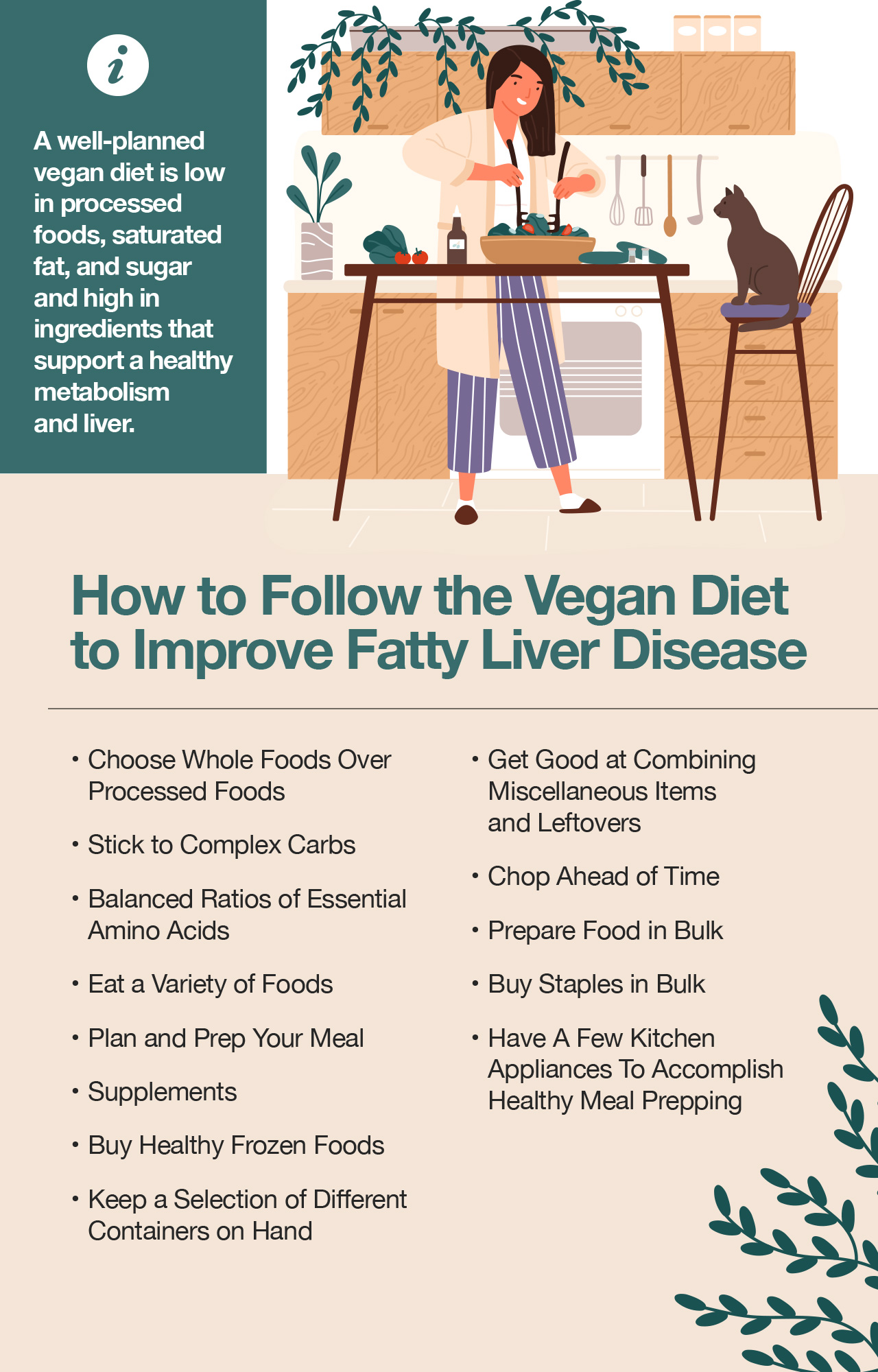
References:


